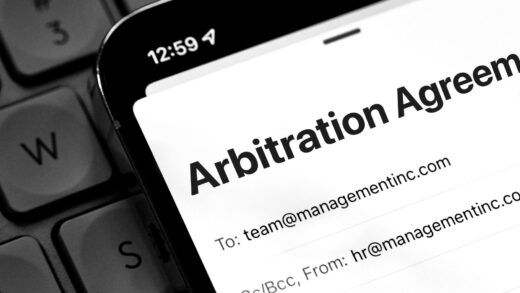Definition of Residency in the Washington DC
To qualify as a Washington DC resident, one must have lived in Washington DC for at least half a year. Living two or more years in Washington DC also establishes residency. However, just because someone has lived in Washington DC does not necessarily mean that they have established residency. You must not only live in Washington DC, but you must also intend to be there for the long haul.
Physical presence alone may not be enough for someone to qualify as a Washington DC resident. You must also have the intent to remain in Washington DC. Washington DC will use a variety of factors to judge intent. If you are a student, but you want to extend the duration of your stay, then Washington DC may accept that you intended to stay beyond the duration of your academics. On the contrary, if you are trying to escape a problem in your native state and initially you intended to return home within a short period, your residency will not qualify as Washington DC residency.
One of the first factors that Washington DC uses to classify someone as a resident is the location where they spend most of their time . If you have an out-of-state address, and you are not trying to disguise your primary residence, you will have a hard time claiming Washington DC residency. If you have an out-of-state address, but it is for legitimate reasons, then it is still possible to claim Washington DC residency.
If you are trying to claim residency, then you should arguably follow the lead of police officers, military personnel and firefighters and reside 96 hours per week in Washington DC to qualify for residency. Police officers, military personnel and firefighters must be able to claim that they work at their permanent duty locations for longer than 96 hours per week in order to keep their Washington DC residency if they live outside of Washington DC.
The multinational nature of Washington DC means that it is common for someone with foreign interests to spend large amounts of time in the United States, and in this case, in Washington DC. Foreign diplomats and individuals transferred from their home countries to Washington DC are not automatically classified as Washington DC residents and must still demonstrate the intent to stay in Washington DC for an extended period.
Documents Proving Residency
When it comes to proving residency in Washington DC, the following three types of forms of documentation are generally considered acceptable:
- Utility Bills: A utility bill is an itemized bill provided to a resident of a home for monthly services, such as energy, water, gas, telecommunications and/or a monthly Internet service. A utility bill that contains the name and address of the applicant on the bill and a current date is usually sufficient to document a person’s residency.
- Lease or Rental Agreement: A lease or rental agreement is a written legal agreement between a tenant and landlord/lender that typically includes the names of both parties along with the rental address. The rental agreement may also be called a lease, depending upon the terminology used by the applicant and lender.
- Driver’s License or ID: A driver’s license or alternative form of identification provided by the District of Columbia government that bears current contact information and has never listed an out of state address. Typically, this is only allowed if the applicant has relocated to D.C. within six months prior to applying.
Residency for Voting Purposes
Whether you’re a new arrival to Washington DC or have been a resident for some time now, learning about the residency requirements is important to understanding the eligibility for voting. Residency in Washington DC is determined by whether you live within the boundaries of the District of Columbia. If you do live within the boundaries, you are eligible to vote in local elections. Similar to other states and cities in the country, registering to vote in Washington DC gives citizens the right to vote in primary elections, general elections, and special elections at any of the local or federal election locations.
Being eligible to vote in Washington DC, however, does not allow you the right to vote in other jurisdictions such as Maryland or Virginia, meaning you have to meet specific requirements for each individual city, state, region, etc. In order to vote in Washington DC, you need to be 18 years old or older, a U.S. citizen, and a resident of Washington DC, which is determined by your relationship to housing and residency within the boundaries of the District of Columbia.
To explain further, you’re a resident if you own, rent or lease a home in the District of Columbia, regardless of where else you live. Denying this claim, of course, would mean you don’t meet the residency requirements for voting. You’re not considered a resident if you use a residence in the District of Columbia but maintain a home outside the District of Columbia. It’s possible to be a resident for voting without being a resident for purposes of in-state tuition and other benefits. In the state of New Jersey, for example, voters are required to register and show proof they’ve been residents of the state for one year before they can vote.
Proof of residency can come from various documents that contain the applicant’s social security number and address. A government-issued photo ID, for instance, is acceptable, but the photo must be clear and the name on the ID must be consistent with the name on the voter application. Those who are attempting to vote in Washington DC but do not meet the requirements will be considered a non-resident, thus making them ineligible to vote in local, primary, general or any other special election.
Tax Residency
If you have a permanent address in DC, then you are also a DC resident for tax filing purposes. In other words, if you live at that address during its regular business hours and have the intention of returning there after temporary absences stemming from such things as work or vacations, you’re a DC resident. Renters and homeowners qualify as DC residents for tax purposes. However, you are not considered a DC resident if your residence is a temporary one (less than 30 consecutive days). Permanent residents of DC who work or go to school in other jurisdictions should bear in mind that if they spend more than 183 days per year in their alternate jurisdiction, they may be prevented from claiming "non-resident" status and actually be classified as residents of that alternate jurisdiction after all (if that alternate jurisdiction has a DC/Alternate Jurisdiction tax treaty in place).
As mentioned above , residents of DC are subject the city’s personal income tax. There are two steps to this requirement. First, residents are required to file a Form D-20 from the Office of the Chief Financial Officer if they earn $12,200 or more as a single filer, or a minimum of $24,400 if married, and reside in DC for more than 183 days in a calendar year.
Second, DC residents are required to file a federal income tax return if they earn at least $12,200 as a single filer and $24,400 if married. The total amount of income earned by a couple filing jointly counts regardless of whether or not it is DC-based. For this reason, cross-jurisdiction residents should consult a tax attorney to determine the most appropriate course of action.
Residency for Tuition Purposes
Public colleges and universities in the District of Columbia offer in-state tuition rates to individuals who have been bona fide residents of D.C. for twelve consecutive months immediately prior to the date of application for admission to the institution.
Proof of residency must accompany any application for admission to a college or university in which residency is desired. A completed, signed Residency Application must be submitted as well, along with supporting documentation that shows D.C. residency for twelve consecutive months. Acceptable documentation includes:
• drivers license from the District of Columbia
• voter registration from the District of Columbia
• tax return indicating that the individual has paid a D.C. income tax
• a lease showing a twelve-month term
• a bank statement with a D.C. residence listed
• a paystub or other employment-related document
• property tax bill
• utility or credit card statement
• valid D.C. vehicle registration
• D.C. Food Stamp card
• military orders accompanied by proof of orders to active duty
• copy of birth certificate of applicant, if under the age of eighteen at time of application (to determine citizenship requirements)
• copy of Social Security card of applicant to show residency for tuition purposes
• for married applicants/spouses of active duty military personnel, include copy of marriage license and one of the documents listed above
• for the dependents of active duty military personnel only, a copy of military orders and a utility or credit card statement no older than the previous 90 days
• a copy of Certificate of Naturalization
• an immigration document, such as Form 94 or a I-65, if applicable to demonstrate legal status in the United States
• valid Certificate of Eligibility for Nonimmigrant Student Status (I-20) from the Department of Homeland Security
• valid Alien Registration Receipt Card (I-551)
Implications of Residency Misrepresentation
For an individual to be able to legally obtain residency in the District of Columbia, he or she must establish legal residence in the city. A person is considered a legal resident if he or she has a true, fixed and permanent home in the District of Columbia. If a person does not meet the legal definition of a resident, that person may be subject to significant penalties and fines for continuing to register as a D.C. resident. Those who attempt to use fraudulent means to obtain residency in D.C. may be subject to criminal charges.
First, an individual who is not technically a legal resident of Washington, D.C. but still registers or continues to register in some capacity as a resident of D.C. will be guilty of a misdemeanor on account of false pretenses, punishable by a fine of up to $1 , 000 for each offense. This same offense may also result in civil liability to any party injured as a result of the false claims of District residency and will also require a restitution order that includes the cost of any falsely obtained benefits. The civil and restitution liabilities may be pursued against the individual in civil court in addition to any criminal charges or penalties.
Second, for those individuals who have had their rightful residency in Washington, D.C. revoked or canceled but who continue to maintain their voting registration in D.C., it is illegal to vote in Washington. These individuals may face fines up to $25 for each offense and will have to pay for a fair and impartial recount in any election they were determined to have illegally voted in.
Individuals who do hold legal residency in D.C. but fail to change their voter registration to a new address in D.C., or those individuals who hold legal residency in another state, should register in their new state and not attempt to register in D.C. in order to avoid being charged with this offense.




